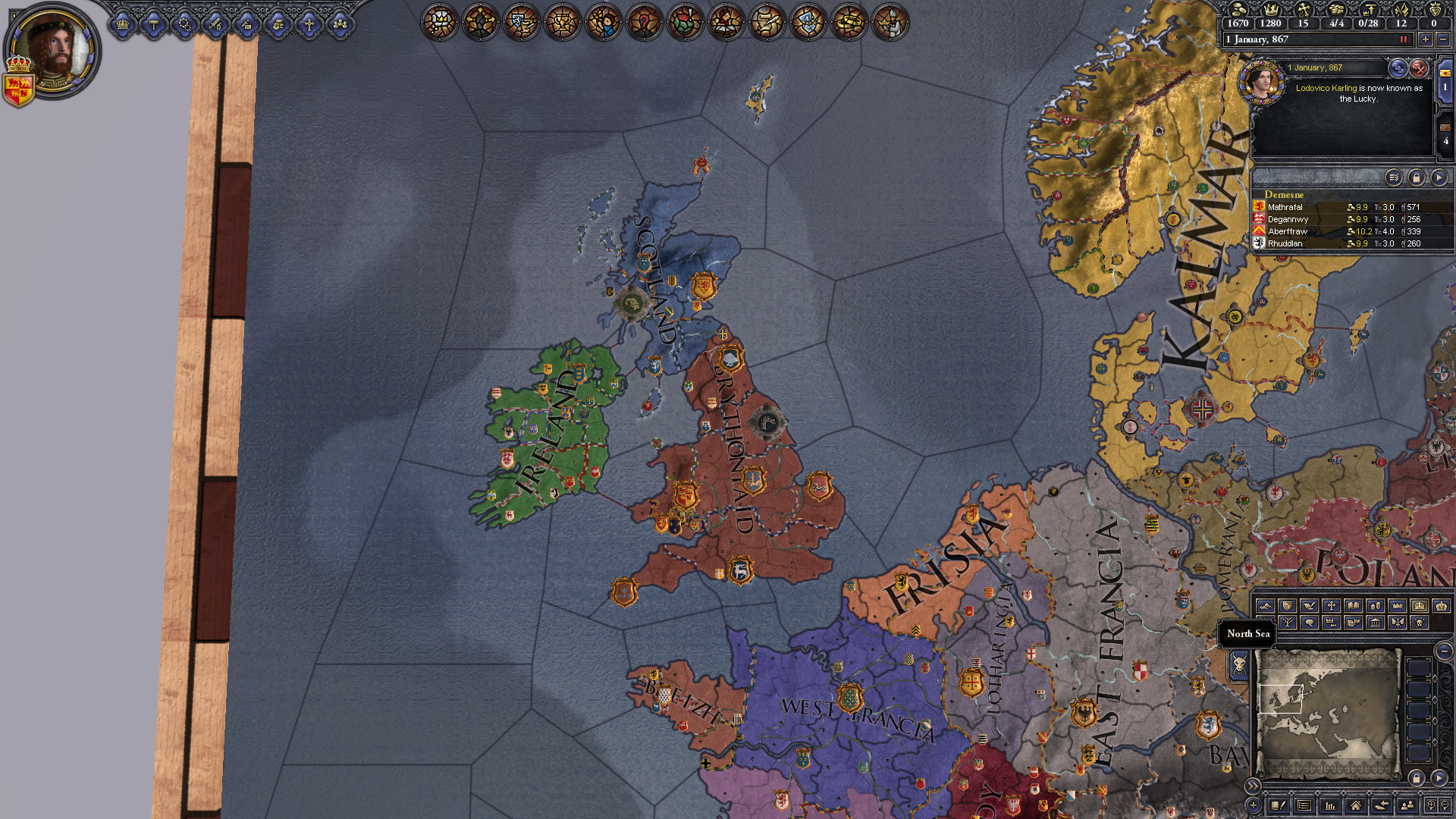
Æthelfrith forced a battle near Chester and defeated Selyf and his allies. Seeing an opportunity to further drive a wedge between the North Welsh and those of Rheged, Æthelfrith invaded Powys' northern lands. In 616, the armies of Æthelfrith of Northumbria clashed with Powys. Faced with shrinking manpower and increasing Anglian encroachment, King Brochwel Ysgithrog may have moved the court from Caer Guricon to Pengwern, the exact site of which is unknown but may have been at Shrewsbury, traditionally associated with Pengwern, or the more defensible Din Gwrygon, the hill fort on The Wrekin. However, the English were less affected by this plague as they had far fewer trading contacts with the continent at this time. In 549 the Plague of Justinian - an outbreak of a strain of bubonic plague - arrived in Britain, and Welsh communities were devastated, with villages and countryside alike depopulated. This was a gradual process, and English control in the West Midlands was uncertain until the late 8th century. In the following centuries, the Powys eastern border was encroached upon by English settlers from the emerging Anglian territory of Mercia. The Historia Brittonum, written around AD 828, records the town as Caer Guricon, one of his "28 British Towns" of Roman Britain. Archaeological evidence has shown that, unusually for the post-Roman period, Viroconium Cornoviorum survived as an urban centre well into the 6th century and thus could have been the Powys capital. Throughout the Early Middle Ages, Powys was ruled by the Gwerthrynion dynasty, a family claiming descent jointly from the marriage of Vortigern and Princess Sevira, the daughter of Magnus Maximus.

An entry in the Annales Cambriae concerning the death of King Cadell ap Brochfael says that the land later called Powys was originally known as Ternyllwg. During the Roman Empire, this region was organised into a Roman province, with the capital at Viroconium Cornoviorum (modern Wroxeter), the fourth-largest Roman city in Britain. The name Powys is thought to derive from Latin pagus 'the countryside' and pagenses 'dwellers in the countryside', also the origins of French "pays" and English "peasant".


 0 kommentar(er)
0 kommentar(er)
